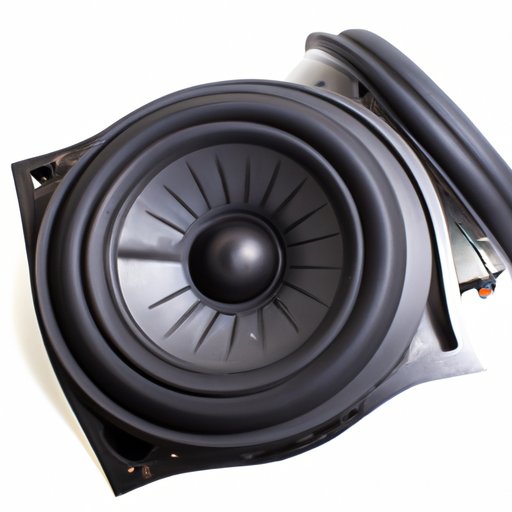Introduction
When it comes to sound systems, there are many different options available. Two of the most common types of speakers are car speakers and home speakers. While both types of speakers can produce great sound, they have several important differences that you should understand before deciding which one is right for you. In this article, we’ll explore how car speakers differ from home speakers in terms of design, purpose, portability, sound quality, materials used, and acoustic environment.
Design & Purpose Differences
The first major difference between car speakers and home speakers is their design. Car speakers are designed to fit into a vehicle’s interior, while home speakers come in a variety of shapes and sizes to fit any room. Home speakers also tend to be larger than car speakers, as they need to produce more sound to fill a larger space.
The purpose of each type of speaker also differs. Car speakers are designed to provide clear, balanced sound in a small, enclosed space. Home speakers, on the other hand, are designed to provide a more immersive experience with bigger sound. They also tend to have more features, such as multiple drivers, subwoofers, and surround sound capabilities.
Portability & Sound Quality
Another key difference between car speakers and home speakers is portability. Car speakers are designed to be easily transported and installed in a variety of vehicles. Home speakers, on the other hand, are typically stationary and require more effort to move and install. This can affect sound quality, as car speakers may not be able to produce the same level of clarity and depth as home speakers due to the limited size and power requirements.
The power requirements for car speakers and home speakers also differ significantly. Car speakers typically require less power to produce sound, while home speakers require more power to fill a larger space. This means that home speakers are usually louder and clearer than car speakers.
Materials Used in Construction
The materials used to construct car speakers and home speakers also vary. Car speakers are typically made of plastic or composite materials, which make them lightweight and durable. However, these materials can also affect sound quality, as they may not be able to produce the same level of clarity and resonance as heavier materials like wood or metal.
Home speakers, on the other hand, are often made of heavier materials like wood or metal, which can help produce a better sound quality. However, these materials are typically more expensive and may require additional care and maintenance.
Acoustic Environment
The acoustic environment of a car interior is much different than that of a home setting. Car interiors are usually smaller, and the sound produced by car speakers is often muffled by the car’s interior surfaces. This can lead to a less immersive experience and lower sound quality than what is produced by home speakers.
Home speakers, on the other hand, can benefit from a larger acoustic environment. The sound produced by home speakers is typically more immersive and lifelike, as it can fill a larger space without being muffled by surfaces.
Conclusion
As you can see, car speakers and home speakers have many differences that you should consider before making a purchase. Car speakers are designed to fit into a vehicle’s interior, and they typically require less power to produce sound. Home speakers, on the other hand, are designed to provide a more immersive experience with bigger sound, and they typically require more power to fill a larger space. Additionally, car speakers are usually made of lightweight materials, while home speakers are often made of heavier materials. Finally, the acoustic environment of a car interior is much different than that of a home setting, which can affect the sound produced by car speakers.
Understanding the differences between car speakers and home speakers is essential if you want to get the best sound system for your needs. By taking the time to evaluate your specific needs and preferences, you can ensure that you choose the right type of speaker for your situation.
(Note: Is this article not meeting your expectations? Do you have knowledge or insights to share? Unlock new opportunities and expand your reach by joining our authors team. Click Registration to join us and share your expertise with our readers.)
